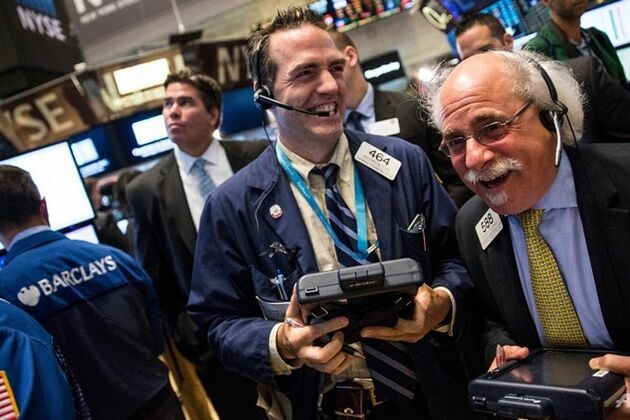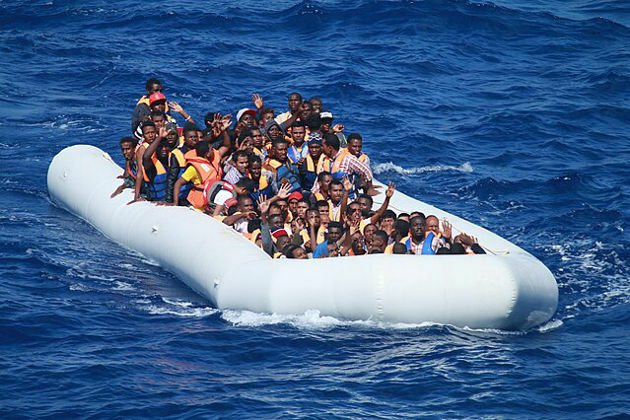Microplastics Enter the Ecosystem and Affect Human Life
Merxwire
23 Apr 2021, 12:19 GMT+10
Microplastic refers to plastic fragments with a diameter or length of less than 5 mm. It comes from many different sources and enters the human body through various pathways and ecological cycles.

Washington, D.C. (Merxwire) - The harm caused by microplastic to marine life has become more and more obvious in recent years. At the American Chemical Society (ACS) meeting, the team of Arizona State University confirmed for the first time that microplastic could be absorbed and accumulated by human organs. The results of this study immediately attracted attention from all walks of life.
Microplastic exists in the human body
Researchers at Arizona State University obtained 47 samples from the database. In order to extract microplastic from the samples, they developed a computer program to calculate the mass and area of УЂтЌтЙУЂтЌтЙthe microplastic. Researchers found Bisphenol A (BPA) used to make plastic in all 47 human samples, confirming that plastic is entering our body.
The Arizona State University team stated, "We never want to be alarmist, but it concerns that these non-biodegradable materials that are present everywhere can enter and accumulate in human tissues, and we don't know the possible health effects."

Where does microplastic come from?
When the washing machine washes synthetic clothes that contain plastic components, tiny fibers will fall off and flow out through the pipeline. A study by McGill University in Canada also found that plastic particles are prone to appear in tea bags under high temperatures, and we drink them into our bodies. More studies have confirmed that there is also microplastic in rain and air, and plastic has become ubiquitous.
United States Geological Survey (USGS) researcher Gregory Wetherbee released a research report, which uses "It is raining plastic" as the research topic to expose shocking facts. He spent many years sampling the rainwater in the Rocky Mountains and found that the rainwater contained microplastic.
The research team at the National University of Ireland found that there is microplastic in deep-sea fish at a depth of 300 to 600 meters in the Atlantic Ocean. These fish live in deep seas far away from the land, and the detection rate of microplastic exceeds 70% of the overall, which has a negative impact on the health of humans who eat fish.

When we are in a plastic crisis
Although the World Health Organization (WHO) pointed out in a report in 2019 that microplastic in drinking water does not cause health hazards at the current level, but there may still be unknown and negative consequences for the ecosystem and human health.
Dr. Melanie Bergmann of the Alfred Wegener Institute said: "We really need to conduct research from the perspective of human health. There have been too many reports focusing on microplastic, but ignoring its relationship with human health."
As microplastic enters the environment, we may not know the impact of microplastic until beyond the safe range. When we are in a plastic crisis, how to maintain human health and make the ecology sustainable is a topic that all mankind must pay attention to. If we cannot stop pollution, the next generation of children may face more illnesses and ecological problems.
Relevant information:
1. It is raining plastic
2. Human Consumption of Microplastics
3. Plastic Teabags Release Billions of Microparticles and Nanoparticles into Tea
4. Methods for microplastics, nanoplastics and plastic monomer detection and reporting in human tissues
УТ
 Share
Share
 Tweet
Tweet
 Share
Share
 Flip
Flip
 Email
Email
Watch latest videos
Subscribe and Follow
Get a daily dose of New York Statesman news through our daily email, its complimentary and keeps you fully up to date with world and business news as well.
News RELEASES
Publish news of your business, community or sports group, personnel appointments, major event and more by submitting a news release to New York Statesman.
More InformationBusiness
SectionGold ETF inflows hit 5-year high as tariffs drive safe-haven bets
LONDON, U.K.: Physically backed gold exchange-traded funds recorded their most significant semi-annual inflow since the first half...
PwC: Copper shortages may disrupt 32 percent of chip output by 2035
AMSTERDAM, Netherlands: Some 32 percent of global semiconductor production could face climate change-related copper supply disruptions...
U.S. stocks recover after Trump-tariffs-induced slump
NEW YORK, New York - U.S. stocks rebounded Tuesday with all the major indices gaining ground. Markets in the UK, Europe and Canada...
Stocks slide as Trump unveils 25% tariffs on Japan, S. Korea
NEW YORK CITY, New York: Financial markets kicked off the week on a cautious note as President Donald Trump rolled out a fresh round...
BRICS issues rebuke on trade and Iran, avoids direct US criticism
RIO DE JANEIRO, Brazil: At a two-day summit over the weekend, the BRICS bloc of emerging economies issued a joint declaration condemning...
BP appoints ex-Shell finance chief Simon Henry to board
LONDON, U.K.: This week, BP appointed Simon Henry, former Shell finance chief, to its board as a non-executive director effective September...
International
SectionTravelers can now keep shoes on at TSA checkpoints
WASHINGTON, D.C.: Travelers at U.S. airports will no longer need to remove their shoes during security screenings, Department of Homeland...
Rubio impersonator used AI to reach officials via Signal: cable
WASHINGTON, D.C.: An elaborate impersonation scheme involving artificial intelligence targeted senior U.S. and foreign officials in...
Warsaw responds to migration pressure with new border controls
SLUBICE, Poland: Poland reinstated border controls with Germany and Lithuania on July 7, following Germany's earlier reintroduction...
Deadly July 4 flash floods renew alarm over NWS staffing shortages
WASHINGTON, D.C.: After months of warnings from former federal officials and weather experts, the deadly flash floods that struck the...
Putin fires transport chief, later found dead in suspected suicide
MOSCOW, Russia: Just hours after his sudden dismissal by President Vladimir Putin, Russia's former transport minister, Roman Starovoit,...
Thousands gather in Himalayas as Dalai Lama celebrates 90th birthday
DHARAMSHALA, India: The Dalai Lama turned 90 on July 6, celebrated by thousands of followers in the Himalayan town of Dharamshala,...













